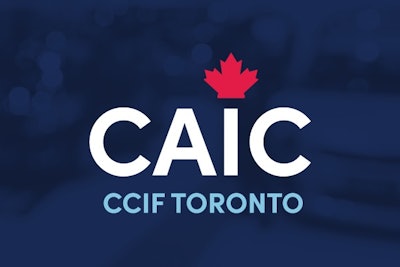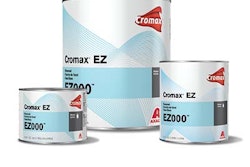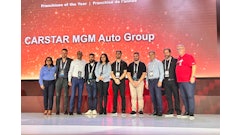
Toronto, Ontario – Canada’s largest gathering of collision repair stakeholders returned last week, as CCIF joined forces with the Canadian Auto Care Industry Conference (CAIC) for two packed days of professional development, networking and innovation.
The event attracted professionals from across the collision ecosystem—including repairers, insurers, OEMs, suppliers and service providers—all connecting under one roof. Attendees explored the latest tools and technologies at the CCIF Vendor Showcase while diving into timely conversations on industry challenges and solutions.
The event kicked off with an industry-wide networking reception that brought together stakeholders from both the mechanical and collision sectors. The reception set the stage for a day of learning and dialogue.

Opening the day was Sylvain Séguin, president of Fix Network Canada and chair of the Canadian Collision Industry Forum (CCIF). Séguin welcomed attendees and introduced highlights from the CCIF steering committee, outlining recent progress and ongoing initiatives shaping the direction of the Canadian collision industry. He also presented a crowd favourite—a 1972 Volkswagen Westfalia that had been retrofitted as an electric vehicle in a collaboration between students from Georgian College’s electrical engineering, mechanical engineering and interior design programs.
The morning continued with a focus on profitability. Jim Bethune of Bethune Consulting Services led an in-depth session on how businesses can leverage information technology to streamline processes, reduce costs and drive efficiencies at the shop level.

A subsequent presentation on insurer–shop collaboration, led by Tom Bissonnette, executive director of the Saskatchewan Association of Automotive Repairers (SAAR), and Ryan Smith, vice-president of claims at Saskatchewan Government Insurance (SGI), emphasized how open communication between bodyshops and insurers supports safer, more efficient repairs and stronger working relationships.
Following a networking break, attendees were offered a chance to personalize their learning experience with concurrent sessions—each offered twice—to explore CCIF’s key pillars: profitability, human resources and vehicle technology.

In the profitability track, Mitchell’s Ryan Mandell presented insights on the rising cost of repairs, vehicle design changes and the potential financial impact of tariffs. In the HR session, Claudia Morgillo of the Collision Career Institute focused on building positive workplace culture, trust and team performance in the face of ongoing change. A third session, led by Mary and Molly Mahoney, explored how the Collision Engineering Program is preparing the next generation of technicians through industry collaboration, mentorship and applied learning.
The afternoon shifted toward advanced learning and technology. I-CAR Canada and I-CAR U.S. provided an overview of modern repair procedures, adaptive training methods and the importance of post-collision inspections. The closing session, led by BodyShop Booster CEO Ryan Taylor, offered a look at how artificial intelligence is transforming shop workflows, from customer communications to repair planning.





















